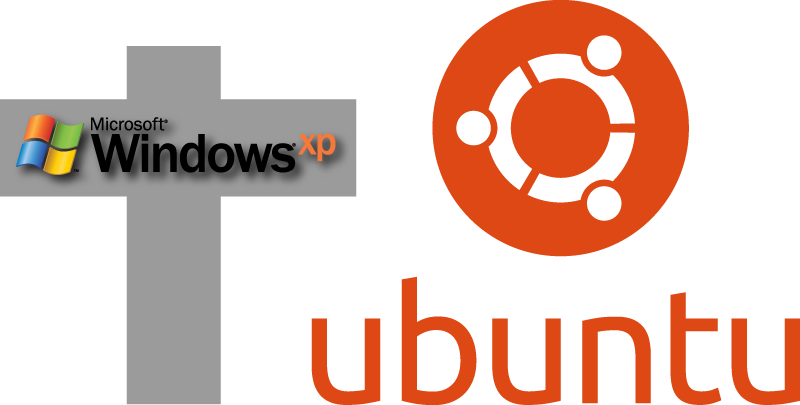Windows XP support is about to end
You may have heard about Windows XP extended support ending at last. This is true (8th April 2014). While it is also true that there is an extension until 2015 for Microsoft Security Essentials, that still means if something goes wrong with your machine, or if someone finds a security vulnerability that allows them access to your machine, Microsoft will not do anything to help you.
Nothing. Zip. Zilch.
This is entirely understandable, because Windows XP is an old technology and Microsoft need to move on and focus their attention on current technologies.
The dangers to anyone with Windows XP are really quite real, so thought and consideration must go into what to do next to protect yourself.
Upgrading your existing machine
As much as I would love to say, “Hey, you can just upgrade your machine,” the reality is that if you are still running Windows XP, then your machine may well be a bit long in the tooth. You can run the Windows 8 Upgrade Assistant tool to test your machine’s compatibility (and you can read about the upgrade process here), but you must ask yourself, even if it passes all the tests, is it really worth it? You will be spending money on a brand new operating system and putting it on old hardware. How much longer do you think your old Windows XP machine’s components are going to last? What about the future? Will it be able to cope with new programs?
These same questions should be asked if you are considering Linux as an alternative as well, although you won’t need to worry about any license costs!
Additionally, either option will involve a clean install of whichever operating system you go for. Meaning, all of the data and programs that were inside Windows XP will be lost, unless you back them up somewhere safe (and external) first.
Buying a new machine
So, maybe that old Windows XP machine is a little bit too old now. How about a new computer instead? Again, you could go for Windows 8, but a lot of people have found the new UI confusing and difficult to get along with. The choice is ultimately yours, but if you are going for what amounts to being a completely new operating system in form and function, you may as well leave your options open and you can save some pennies in the process.
There is a strong case for saying that Linux is in some ways more familiar to people than Windows 8 and it’s new UI tiles. So let’s explore that option and look at the pros and cons of using Linux.
- Cloud computing removes the dependency on a specific operating system.
- Linux is free.
- Free means you will always be able to stay up to date, with no ongoing license fees. There will never be a Linux X is ending scenario.
- Linux is virtually virus free, thus keeping your data safe.
- There is no one size fits all. Linux is highly customisable and comes in lots of different flavours to suit your needs.
- Specific applications (like Adobe Creative Cloud) are not yet available on Linux.
- Linux has a healthy application ecosystem, with big names starting to adopt the platform.
So, the only real drawback are some specific applications? That’s pretty much it and it depends on which applications you use. If you use Microsoft Office for instance, that is not a problem. There are equivalents you can use which don’t cost anything. It is only a problem if there is nothing comparable for Linux. You’ll have to do your own homework to find out about that.
What was that about Ubuntu?
Glad you asked. I am focusing on Ubuntu as a Linux alternative to Windows XP, because it is the one we use here. I have written about it at great length in the past. If you want to catch up on working without Windows, you can.
Essentially Ubuntu is reasonably easy to get along with, it’s free and has good support. Also watch out for Ubuntu Touch coming later this year. That’s Ubuntu for smartphones and tablets, as well as touch enabled PCs and laptops.
The point is, you can buy or build a new computer without an operating system pre-installed. You can save a bit of money doing that, especially if you need to replace a lot of machines, plus it will be secure.
If you are unsure about installing Ubuntu yourself, ask your local IT professional. We build PCs at Alan’s IT Solutions and will be happy to answer any questions you want to ask.

